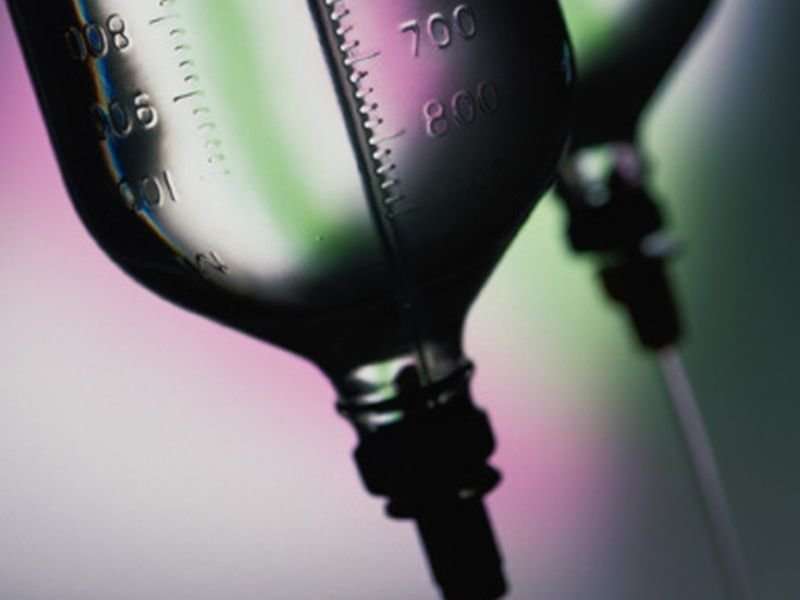(HealthDay)—A restrictive fluid regimen is not associated with increased disability-free survival for patients at increased risk of complications during major abdominal surgery, but is associated with increased acute kidney injury, according to a study published online May 10 in the New England Journal of Medicine. The research was published to coincide with the annual meeting of the Australian and New Zealand College of Anaesthetists, held from May 7 to 11 in Sydney.
Paul S. Myles, M.P.H., D.Sc., from Monash University in Melbourne, Australia, and colleagues randomized 3,000 patients who had an increased risk of complications while undergoing major abdominal surgery to receive a restrictive or liberal intravenous-fluid regimen during and up to 24 hours after surgery (1,490 and 1,493 patients, respectively).
The researchers found that at one-year, the rate of disability-free survival was 81.9 and 82.3 percent in the restrictive and liberal fluid groups, respectively (hazard ratio for death or disability, 1.05; 95 percent confidence interval, 0.88 to 1.24; P = 0.61). The rate of acute kidney injury was 8.6 and 5.0 percent in the restrictive and liberal fluid groups, respectively (P < 0.001).
"Among patients at increased risk for complications during major abdominal surgery, a restrictive fluid regimen was not associated with a higher rate of disability-free survival than a liberal fluid regimen and was associated with a higher rate of acute kidney injury," the authors write.
More information:
Abstract/Full Text
Editorial
More Information
Journal information: New England Journal of Medicine
Copyright © 2018 HealthDay. All rights reserved.
























